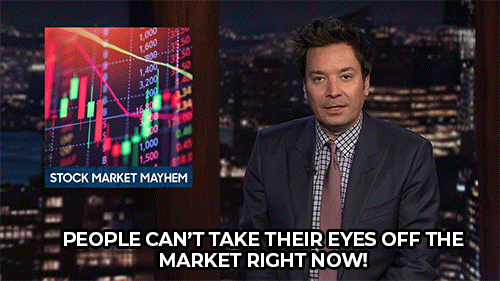Episode 56: Guzman y Gomez Dominates, Accent Struggles, Barnes & Noble's Fall, superstar carsales CEO Cameron McIntyre LIVE, and should you work for a Start-Up?
Adam and Adir live from carsales HQ discuss the rise of Guzman y Gomez, Amazon's destruction of Barnes and Noble, chat to the incredible carsales CEO Cameron McIntyre and answer listener questions.
The Contrarians catchup
Adam and Adir recorded Episode 56 in front of a live studio audience at the CAR Group headquarters in Melbourne.
Adir posted a survey recently, asking: “What’s your favourite part of the podcast?” The top answer was company breakdowns, with 56% of the votes and the other options (general banter, special guests, explanation of financial concepts etc.) scored roughly equal.
Adir recommneded the book “The Little Book that Beats the Market”, which explains how investors can outperform the popular market averages by simply and systematically applying a formula that seeks out good businesses when they are available at bargain prices.
Adir: “If you love something, don't look for something else to love. Love the thing you love. And if you don't love it, then think about trying to find the thing you love. You might not find it. There's this myth of like, people should just make a career out of the thing they love.”
Audience questions (which you have to listen to hear the answers to):
Why did Adir quit medicine? And how did he get past the sunk cost of changing paths?
You've discussed in the past making the transition from a corporate job to either founding or joining a startup. Would you say this career change makes sense for everyone? And what are some things to consider before making the jump?
On the topic of IPOs in general, keen to get Adam and Adir’s advice for the young folk in the room, those that might be looking at taking a role in a business that's positioned to go out for IPO. Great opportunity or risk?
GYG gives investors something to taco ‘bout
Guzman y Gomez announced its FY24 results, impressing the market with 7.5% sales growth after a forecast of 4.8%. Shares have rocketed up to $37, giving the business a market cap of almost $4B. Interestingly, the business was buoyed by breakfast sales, with the breakfast category up 18% for the year.
Adir: “The question is a valuation question. It cannot justify the valuation. Going for the breakfast market is very smart. I think they're basically trying to get tradies in the morning who are going to buy expensive cafe food, and they're going to buy burritos instead. I think that's pretty smart. But, do I think it can justify the valuation? We'll find out in a year or two.”
[Insert a masterclass on what EBITDA is, and why it’s a cheeky metric for a business like Guzman y Gomez that has a lot of leases].
Adir: “One of the trickiest things in the world to try and explain today is what the hell is profit? Because nobody knows anymore. And so let's not even answer the question of whether Guzman y Gomez is profitable, because we don't even know what profit is.”
How to IPO, with Adir Shiffman
Adir: “An IPO is when you get a company and you put it on the stock market. Let's say a company has $50M of profit. How much is this company worth? Well, there's no answer to that question. Let's say we think that company should be worth ten times earnings, so $500M.
“But the thing is, I'm not dumb enough to want to value my company on the earnings that I have. I'd much rather value my company on the earnings that I'm going to have next year. And so what am I going to have next year? I think I can maybe get it to $60M of earnings. And so that all sounds very logical. But now we bring some other elements into play.
“The first thing is I cannot miss my numbers next year, because if I miss the numbers that I am projecting to hit in my prospectus, which is the document you create when you're going to put your company on the stock market, then my company's share price will tank and it'll be hard to recover that share price. So maybe I'll say I'm going to do $55M of earnings because then I get a chance to upgrade and everyone likes upgrades. The market, the world loves upgrades. That's how you drive a share price. In fact, the analysts that analyse your company, they love upgrades. Everyone loves upgrading.
“The other thing is the stockbrokers who are going to sell your shares to, the investors in the IPO, they like, the idea that investors will make money because then the investors will come back and they make money by getting the investors to buy shares.”
The decline of Barnes & Noble
During the week, Leonard Riggio passed away. Leonard was best known as Executive Chairman of Barnes & Noble and its largest shareholder from 1971 until the sale of the company to the hedge fund Elliott Advisors in 2019. Under his leadership, the company expanded significantly from a single retail location on 105 Fifth Avenue in New York City to a nationwide chain with 600+ stores.
In 1996, Barnes & Noble’s revenue was $2B, while the two-year-old Amazon was at $16M in sales.
Amazingly, Barnes & Noble invested in a fledgling ebook company in 1990 that was founded by Martin Eberhard and Marc Tarpenning, the eventual founders of Tesla.
Adir: “Basically it's the law of the jungle, like the whole of society fundamentally operates under the law of the jungle. And we tamper down in society because it's not nice to have people running around killing people. But in business, it pretty much is the law of the jungle. And so Barnes and Noble came along and just killed small bookstores with range and price, and scale. And then Amazon came along and killed Barnes & Noble with range and price, and scale.”
Accent Group struggles
Accent Group announced their financial results, with sales coming in at a flat $1.61B, and net profit falling from $88.7M to $59.5M, leading to CEO Daniel Agostinelli saying he’s working through an operational review to prepare the business for a challenging consumer environment.
Adir: “I think it's got some challenges. Over time if you said to me, what do I think this business will look like in three years, I think it will be heavily pivoting towards its own brands and its margins will be improving and it will be more profitable. That's my guess in three years. It's going to have some short term problems because the economy's bad.”
Superstar carsales CEO Cameron McIntyre LIVE
Cameron was appointed MD and CEO of CAR Group in 2017, after holding the positions of Chief Operating Officer (from October 2014), and Chief Financial Officer and Company Secretary for the previous seven years, including for the IPO of the company in 2009.
Cameron: “We've always had a great Australian business. We felt that we had great IP and that we could push out into international markets, and it was a question of finding which markets would work for us, which is a pretty critical decision. I wouldn't say that it was terribly scientific to begin with, but we were super conservative. And that meant that we were never going to bet the farm on any one transaction. Let's let's take small steps, understand markets, understand the opportunity. And for me, the most important thing is understand the leadership in the business that we're looking to acquire. Do they have the same values?”
Cameron (on the potential existential threat of self-driving cars): “Would I own a self-driving car myself? Yes, I would. What would I do with it? Well, I'd make it drive me to work, and then I'd probably make it go around picking people up and dropping them off and and making some money out of that, and then come and collect me back in the afternoon. That makes good commercial economic sense, potentially. But, I do probably about 10 to 15,000km a year. I'd imagine in that scenario, I'd be doing probably 50. I'd sell my car now every five years. I imagine if I was doing that, I'd sell it every two.”
Five other stories worth following:
Is the Abercrombie & Fitch bubble about to burst? The reanimated apparel company again saw its quarterly revenue grow (up 21%), but its stock is down because its CEO referenced an “increasingly uncertain environment.”
Google is giving its AI image generation tool another shot after backlash in February for its historically and racially inaccurate results. The tool will first roll out to English-language Gemini Advanced users and businesses.
Yelp is suing Google over an alleged monopoly. The antitrust lawsuit claims Google manipulates search results to promote its own local offerings, like restaurant reviews and hours.
Meta’s Oversight Board, which makes recommendations on content moderation across Meta’s platforms, is seeking public comment through Sept. 12 on its policies surrounding gender identity.
GameStop’s latest gambit is turning back the clock. The meme stock/retailer will focus some locations on retro gaming, selling classic games on 18 bygone consoles.









